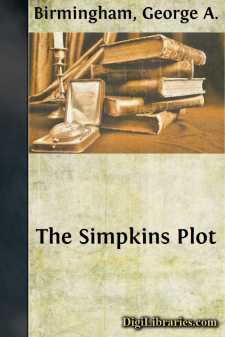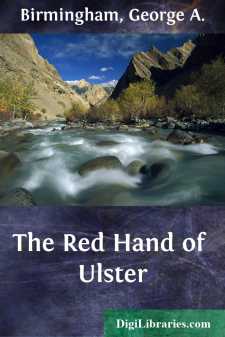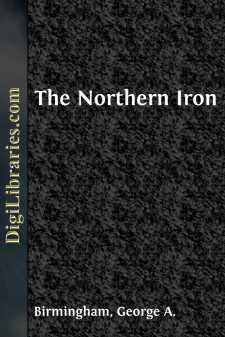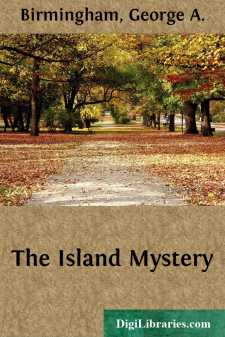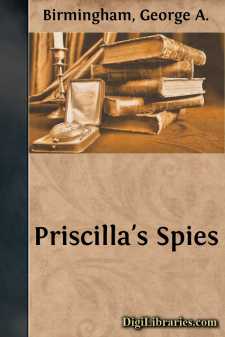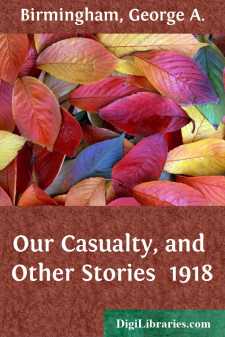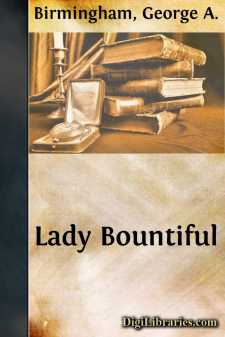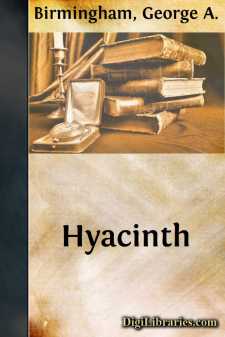Categories
- Antiques & Collectibles 13
- Architecture 36
- Art 48
- Bibles 22
- Biography & Autobiography 813
- Body, Mind & Spirit 142
- Business & Economics 28
- Children's Books 15
- Children's Fiction 12
- Computers 4
- Cooking 94
- Crafts & Hobbies 4
- Drama 346
- Education 46
- Family & Relationships 57
- Fiction 11828
- Games 19
- Gardening 17
- Health & Fitness 34
- History 1377
- House & Home 1
- Humor 147
- Juvenile Fiction 1873
- Juvenile Nonfiction 202
- Language Arts & Disciplines 88
- Law 16
- Literary Collections 686
- Literary Criticism 179
- Mathematics 13
- Medical 41
- Music 40
- Nature 179
- Non-Classifiable 1768
- Performing Arts 7
- Periodicals 1453
- Philosophy 64
- Photography 2
- Poetry 896
- Political Science 203
- Psychology 42
- Reference 154
- Religion 513
- Science 126
- Self-Help 84
- Social Science 81
- Sports & Recreation 34
- Study Aids 3
- Technology & Engineering 59
- Transportation 23
- Travel 463
- True Crime 29
George A. Birmingham
George A. Birmingham was the pen name of James Owen Hannay, an Irish clergyman and prolific author born in 1865 and died in 1950. He wrote numerous novels and plays, often satirizing Irish society and politics with a humorous and critical eye. Among his notable works are "The Seething Pot" and "Spanish Gold," which reflect his keen observations and wit.
Author's Books:
Sort by:
CHAPTER I. The platform at Euston was crowded, and the porters' barrows piled high with luggage. During the last week in July the Irish mail carries a heavy load of passengers, and for the twenty minutes before its departure people are busy endeavouring to secure their own comfort and the safety of their belongings. There are schoolboys, with portmanteaux, play-boxes, and hand-bags, escaping home...
more...
The events recorded in this chapter and the next did not fall under my own observation. I derived my knowledge of them from various sources, chiefly from conversations with Bob Power, who had, as will appear, first-hand knowledge. In the third chapter I begin my own personal narrative of the events which led up to the final struggle of Ulster against Home Rule and of the struggle itself. Accidents of...
more...
CHAPTER I The road which connects Portrush with Ballycastle skirts, so far as any road can and dare, the sea coast. Sometimes it is driven inland a mile or so by the impossibility of crossing tracts of sandhills. The mounds and hollows of these dunes are for ever shifting and changing. The loose sand is blown into new fantastic heights and valleys by the winter gales. No road could be built on such...
more...
In 1914 there were not twenty men in England who had ever heard of the island of Salissa. Even now—I am writing in the spring of 1917—the public is very badly informed about the events which gave the island a certain importance in the history of the war. A couple of months ago I asked a well-known press-cutting agency to supply me with a complete collection of all references to Salissa which had...
more...
CHAPTER I The summer term ended in a blaze of glory for Frank Mannix. It was a generally accepted opinion in the school that his brilliant catch in the long field—a catch which disposed of the Uppingham captain—had been the decisive factor in winning the most important of matches. And the victory was particularly gratifying, for Haileybury had been defeated for five years previously. There was no...
more...
I ~~ OUR CASUALTY There is not in the whole British Isles a more efficient military body than the Ballyhaine Veterans' Corps. The men look like soldiers when they have their grey uniforms on and their brassards on their sleeves. They talk like soldiers. They have the true military spirit. There is not a man in the company under fifty years of age, but if the Germans attempt a landing on the...
more...
CHAPTER I I had, I suppose, some reason for calling on Canon Beresford, but I have totally forgotten what it was. In all probability my mother sent me to discuss some matter connected with the management of the parish or the maintenance of the fabric of the church. I was then, and still am, a church warden. The office is hereditary in my family. My son—Miss Pettigrew recommended my having several...
more...
I. LADY BOUNTIFUL Society in the west of Ireland is beautifully tolerant. A man may do many things there, things frowned on elsewhere, without losing caste. He may, for instance, drink heavily, appearing in public when plainly intoxicated, and no one thinks much the worse of him. He may be in debt up to the verge of bankruptcy and yet retain his position in society. But he may not marry his cook. When...
more...
CHAPTER I In the year 1850 or thereabouts religious and charitable society in England was seized with a desire to convert Irish Roman Catholics to the Protestant faith. It is clear to everyone with any experience of missionary societies that, the more remote the field of actual work, the easier it is to keep alive the interest of subscribers. The mission to Roman Catholics, therefore, commenced in that...
more...
CHAPTER I. "For that mercy," said Gorman, "you may thank with brief thanksgiving whatever gods there be." We were discussing, for perhaps the twentieth time, the case of poor Ascher. Gorman had reminded me, as he often does, that I am incapable of understanding Ascher or entering into his feelings, because I am a man of no country and therefore know nothing of the emotion of patriotism....
more...


